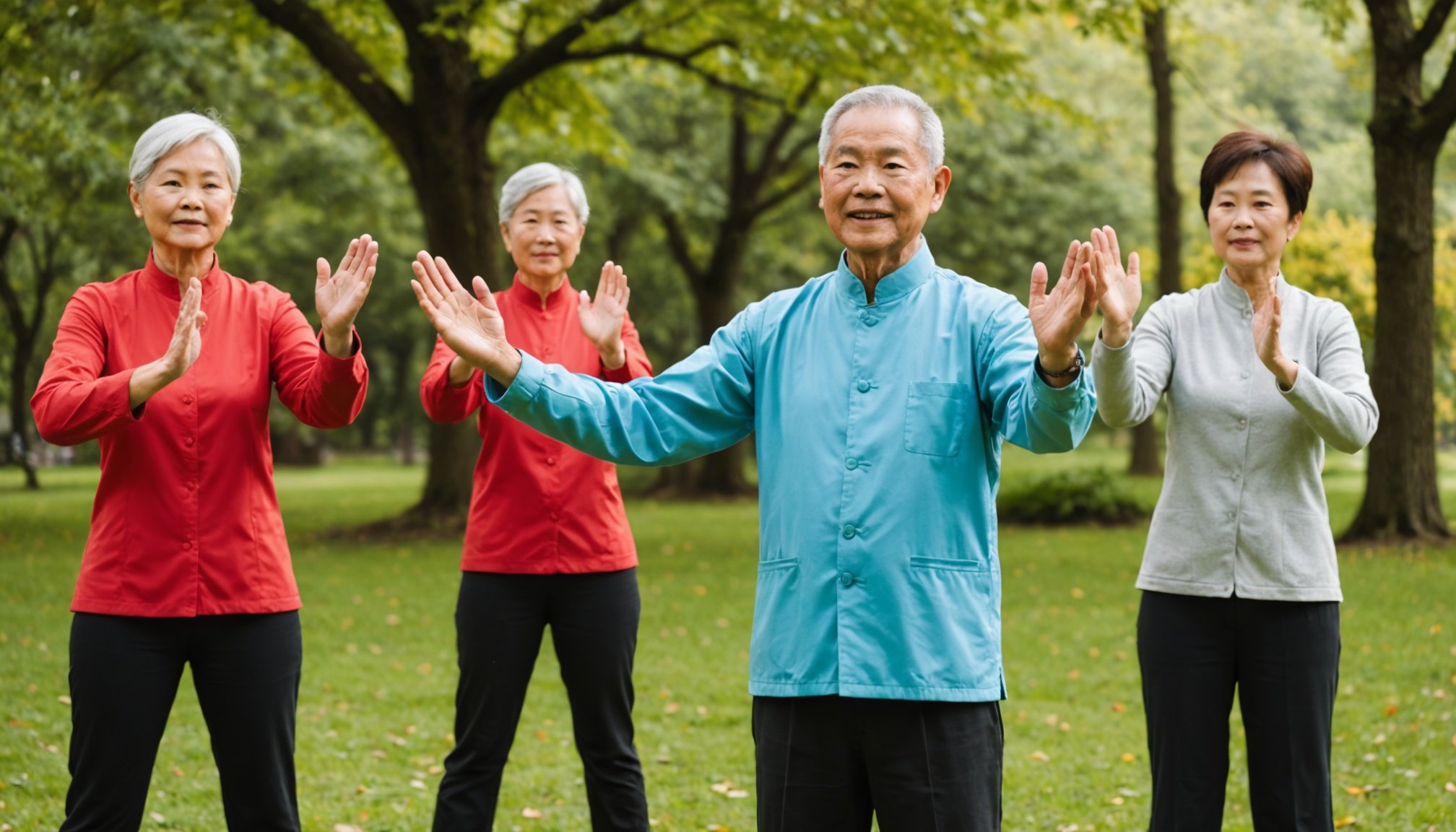Overview of Qigong
Qigong is an ancient holistic health practice aimed at cultivating physical and mental well-being. Its history traces back thousands of years to China, where it was developed as a method of harnessing energy, or “qi,” for improved health. Focusing on the body, mind, and spirit, Qigong embodies key principles that emphasize balance, harmony, and the integration of body movements with breath.
A crucial aspect of Qigong practices is the incorporation of mindfulness, where practitioners concentrate on aligning their thoughts with physical actions. This meditative state is achieved by synchronizing deliberate movements with controlled breathing, promoting relaxation and focus.
In the same genre : Transforming Stroke Rehabilitation: The Impact of Haptic Technology on Recovery Success
The philosophy underlying Qigong is based on the idea that health problems arise when qi is blocked or unbalanced. By practicing Qigong, individuals aim to increase the flow and balance of qi through specific exercises, enhancing their overall wellness.
Mindfulness within Qigong exercises helps mitigate stress, contributes to a sense of inner peace, and promotes the body’s natural healing processes. As such, Qigong not only benefits individual health but also supports elderly wellness by providing gentle, accessible practices that enhance quality of life.
Additional reading : Tailored Nutrition for Endurance Athletes: Enhancing Performance with Precision Diets
Benefits of Qigong for Elderly Immunity
Practicing Qigong can significantly enhance the immune system in older adults. The gentle movements and focused breathing inherent in Qigong stimulate the lymphatic system, which plays a crucial role in fighting infections. Improved circulation from these exercises ensures that essential nutrients are efficiently delivered throughout the body, thus bolstering overall immunity.
Furthermore, the practice of Qigong profoundly impacts stress reduction, a prominent factor influencing the immune response. By cultivating mindfulness and promoting relaxation, Qigong helps lower stress hormones like cortisol, which are known to suppress immune function. A consistent practice can thus lead to a more resilient immune system by mitigating the adverse effects of chronic stress.
Moreover, Qigong’s health benefits extend to improving energy flow or “qi,” which is believed to be vital for maintaining holistic well-being. This enhancement of qi ensures that the body’s natural defense mechanisms operate optimally. As a low-impact exercise, Qigong is particularly suitable for seniors seeking to enhance their health without the strains associated with more intense physical activities.
In conclusion, the regular practice of Qigong can offer multiple advantages, acting as both preventive and supportive care for an aging immune system.
Scientific Studies Supporting Qigong
Research findings offer a compelling view of Qigong’s benefits, particularly for the elderly. Notable studies underscore how Qigong can bolster the immune system. For example, evidence-based practice shows that Qigong improves immune response markers, such as increased white blood cell counts, essential for fighting infections.
One significant study found that participants engaging in regular Qigong practice experienced a reduction in stress levels, aiding robust immune function. The correlation between stress reduction and enhanced immunity is well-documented, with Qigong providing an effective means to achieve this balance. Studies demonstrate that lower cortisol levels, a stress hormone, result from consistent Qigong exercises, further substantiating its health benefits.
Additionally, testimonials from study participants echo these findings. Many reported feeling healthier and more energized after incorporating Qigong into their routines. This anecdotal evidence complements scientific data, painting a comprehensive picture of Qigong’s impact.
Emphasising the need for more extensive research, current studies lay a positive foundation for Qigong as a therapeutic practice among the elderly. The cumulative evidence inspires confidence in its potential to support holistic health, making it a valuable addition to seniors’ wellness practices.
Practical Qigong Techniques for Elderly Individuals
To enjoy the holistic health benefits Qigong offers, elderly individuals can adopt Qigong routines that cater to their needs. These routines focus on gentle movements, perfect for stimulating the immune system without strain.
Simple Qigong exercises for immunity
- Arm Raises: This exercise enhances circulation, boosting immunity. While standing or sitting, raise arms slowly to shoulder height, inhaling deeply and exhaling as you lower them.
- Walking Meditation: Integrating movement and mindfulness, this exercise aids stress reduction. Embrace a slow pace, focusing on breath and rhythm.
Ways to integrate Qigong into daily routines
Incorporate Qigong by setting aside dedicated time each day. Simple movements can be performed upon waking or during short breaks, ensuring consistency.
Modifications for mobility and flexibility for older adults
Adaptations ensure everyone can participate. For those with limited mobility, exercises can be performed seated, maintaining effectiveness while respecting limitations.
Understanding one’s physical boundaries is crucial, and exercises should be modified to avoid discomfort or tension. Establishing a consistent practice routine, even with minor modifications, enhances overall wellness and supports elderly wellness effectively.
Resources for Beginners in Qigong
Embarking on a Qigong journey requires the right resources to help beginners integrate this practice into their lives. Various Qigong resources offer guidance, from books to online courses tailored for newcomers.
For those preferring self-paced learning, numerous instructional materials are available. Books like “The Healing Promise of Qi” provide insightful introductions, while online platforms, such as Qigong Hub, offer structured courses. These resources lay a solid foundation in understanding Qigong’s philosophy and techniques.
Finding local Qigong classes or community support groups can enhance learning through interactive sessions. Local wellness centers often host classes where practitioners can experience Qigong routines under expert supervision. Experience shared in a group setting often enhances motivation and fosters a sense of belonging.
Choosing the right instructor is crucial, ensuring their approach aligns with your goals. Look for instructors with credentials in elderly wellness and holistic health. They can provide tailored sessions suitable for varying fitness levels and mobility needs. Personal referrals, community forums, or trial classes can help gauge an instructor’s compatibility.
Ultimately, these resources create a supportive framework for beginners to embrace Qigong, promoting an enriching and sustainable practice.

